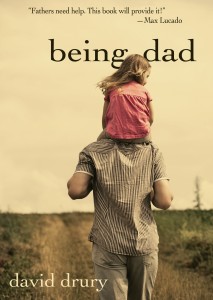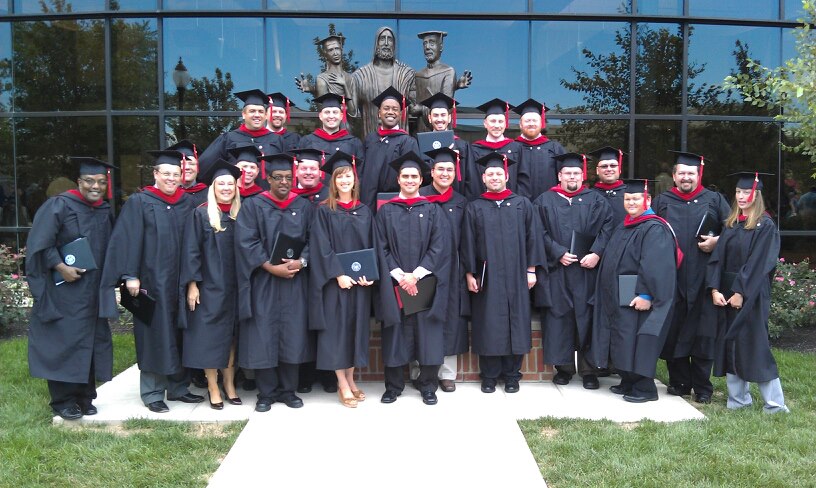 On Fathers Day 2014 I gave each of the dads in my church a copy of David Drury’s book Being Dad. If you have not yet received you copy, please see me. I will not give this book to your wife or children to pass along to you, as this is a gift from me to you. Although I’ve read the book already, I’m reading it again, along with any of you that have begun reading (I saw one dad reading right after church). There will be no spoilers of the book here, but I will post my reflections on the three major sections of the book: The Early Years, The Growth Years, and The Peer Years, with the hope that these posts will further encourage you to not only read the book, but to also become the best dad you can be.
On Fathers Day 2014 I gave each of the dads in my church a copy of David Drury’s book Being Dad. If you have not yet received you copy, please see me. I will not give this book to your wife or children to pass along to you, as this is a gift from me to you. Although I’ve read the book already, I’m reading it again, along with any of you that have begun reading (I saw one dad reading right after church). There will be no spoilers of the book here, but I will post my reflections on the three major sections of the book: The Early Years, The Growth Years, and The Peer Years, with the hope that these posts will further encourage you to not only read the book, but to also become the best dad you can be.
 The second section of the book provided many stories of leaving a legacy through lessons. And while David and I are close in age, I found some of our experiences divergent. While both our families value education, I think each of our dads imparted that legacy from a difference social and cultural background.
The second section of the book provided many stories of leaving a legacy through lessons. And while David and I are close in age, I found some of our experiences divergent. While both our families value education, I think each of our dads imparted that legacy from a difference social and cultural background.
I remember looking at report cards with one of my middle school friends. I don’t recall exactly, but my friend’s report card had something like one B, one D, and the rest Cs. He very excitedly told me about the reward he would get when he got home. “I get $5 for an A, $3 for a B, $1 for a C, and nothing for Ds and Fs,” he said. I informed him that in my house we didn’t bring home any grades lower than Bs, simply to avoid getting in trouble. As and Bs, with mostly As, were simply the minimum standard, not reason to get rewarded.
In college, one of my professors told me a similar story of being paid for grades. He said that his parents choosing to monetarily reward him for good grades turn his academic career around. I didn’t do poorly in middle or high school, but I wondered if I would have done better if I had been offered money. For me the answer was, “No.” It’s not that I didn’t have a greedy streak, but the difference was two legacies from my dad.
First, my dad taught me that education was a reward in itself. My parents lived through the Civil Rights Movement, and weren’t many generations removed from a time when it was difficult or impossible for a Black person to obtain an education. My dad taught me I need higher achievement than my White peers in order to be perceived as equal, and a very recent study, Closing the Race Gap, by The Young Invincibles shows this still to be the case. I lived in an African-American home culture that was kind of a throw back to the late 1800s Reconstruction Era, when Negro children were told they would grow up to be doctors, lawyers, and educators, and that doing so wasn’t selling out to White culture.1 My family throws the biggest parties and gives the biggest gifts, not for birthdays or Christmas, but for graduations.
The second lesson was the importance of study. Although I didn’t bring this lesson to bear in my life until college, my dad taught it to me in third grade. All though public school (K-12) I never studied. I paid attention in class and completed my homework, and I thought that was all every student did. But for about a month in 3rd grade I attended a private Christian school. There I fl unked my first spelling test. Fortunately for me, my dad didn’t ask me about my spelling grade until a few weeks later, when I could show him a paper with a C-. His response was, “That’s the same as a D.” My defense was that the spelling words at the private school were more difficult than the words at public school. My dad’s solution was that he would study spelling words with me every night. After a week of study with my dad, I earn a B-, and more importantly learned how to improve. Finances put me back in public school and easy street academics, but the difference between a 3.33 GPA high school student and a college student that only missed summa cum laude by not challenging one A- grade was remembering the lesson of study.
unked my first spelling test. Fortunately for me, my dad didn’t ask me about my spelling grade until a few weeks later, when I could show him a paper with a C-. His response was, “That’s the same as a D.” My defense was that the spelling words at the private school were more difficult than the words at public school. My dad’s solution was that he would study spelling words with me every night. After a week of study with my dad, I earn a B-, and more importantly learned how to improve. Finances put me back in public school and easy street academics, but the difference between a 3.33 GPA high school student and a college student that only missed summa cum laude by not challenging one A- grade was remembering the lesson of study.
Now that I’m a dad, I don’t plan to pay for grades, but I do see that my daughter thrives on praise and interaction. So I plan to be involved with her academically and verbally recognize when she does well, instead of only speaking up when she does poorly. I also don’t have a problem with a moderate amount of Tiger Mom parenting, because children often do not know what level they can achieve without a little push to explore, try, and remain steadfast.
1. Tanner, H.O. (June 1909).”The Story of an Artist’s Life.” The Word’s Work. p. 11663.
photo credit: Clone Troopers Teaching Kalexanderson via photopin cc






